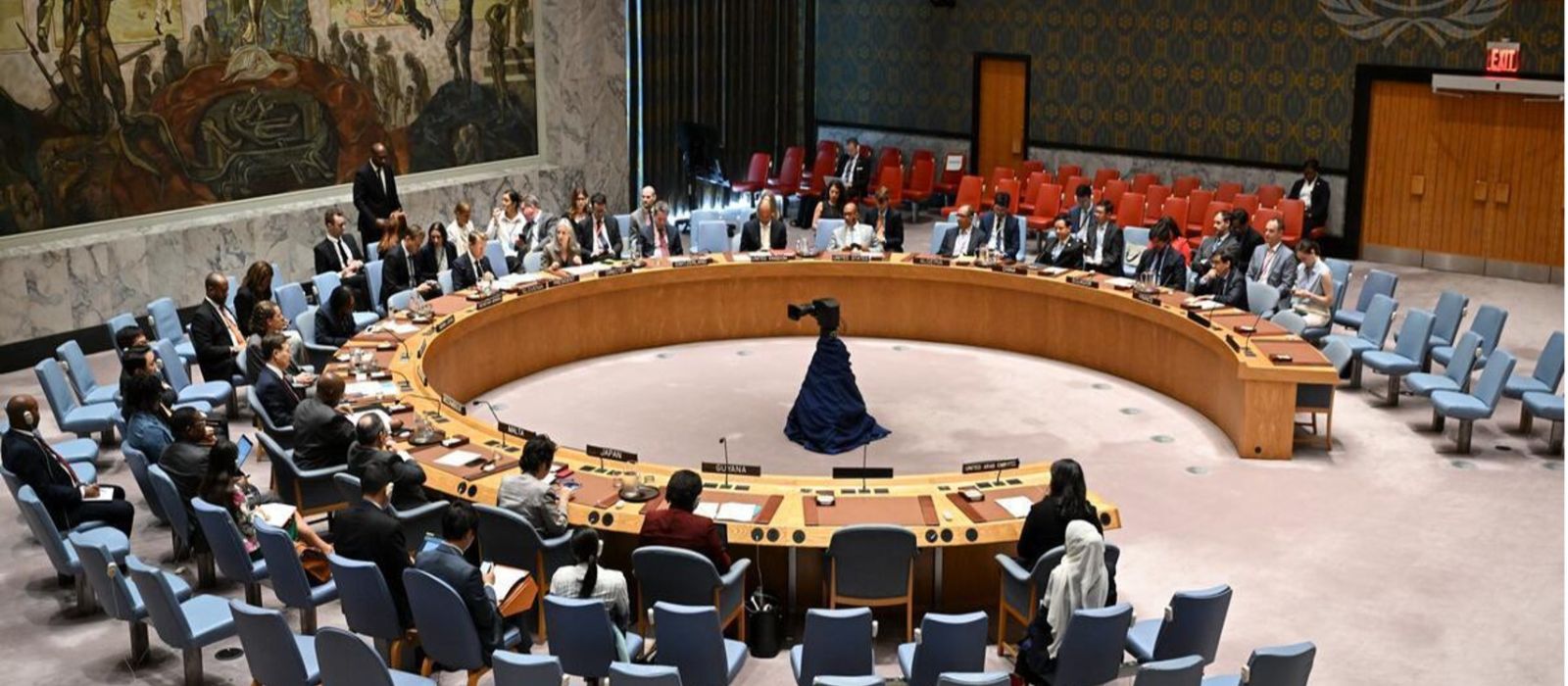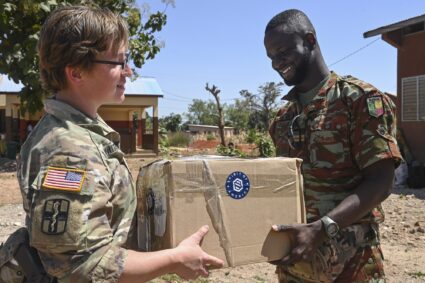
In a recent UN Security Council (UNSC) meeting held at end of 2024, a draft resolution aimed at strengthening measures to protect civilians and increase humanitarian aid access in Sudan was vetoed by the Russian Federation. The Draft Resolution, submitted by Sierra Leone and the United Kingdom, received support from 14 members but was ultimately blocked by Russia. The resolution sought to condemn the ongoing assaults by the Rapid Support Forces in various regions of Sudan and demanded an immediate halt to attacks on civilians. It also called for the Sudanese Armed Forces and Rapid Support Forces to honor their commitments to protect civilians and engage in dialogue to de-escalate the conflict.
The views discussed at the UN Security Council (UNSC) meeting highlighted a critical issue about the fate of African nations which is often decided by non-African states. This situation underscored the urgent need for Africa to have a permanent seat at the UNSC, ensuring that the continent’s voice was adequately represented in global decision-making processes. The contrasting approaches of the security council in addressing the Sudan crisis highlighted the complexities of international politics and underscored the need for more balanced representation at the UNSC.
The Sudan Crisis:
The ongoing conflict in Sudan has led to severe humanitarian issues, including attacks on medical facilities, markets, and refugee camps, alongside extrajudicial killings and sexual violence.16 countries supported at the resolution aimed at addressing these atrocities, providing humanitarian aid, and supporting Sudan’s transition to democracy. This multilateral approach emphasized the international community’s responsibility to protect civilians and ensure their safety.
Contrasting Approaches?
Russian Federation’s Stance: The Russian representative argued that the draft resolution undermined Sudan’s sovereignty by imposing external solutions and disregarding the Sudanese government’s authority over border and security control. Russia’s veto was framed as a defense of Sudan’s right to self-determination and a rejection of external accountability mechanisms.
United Kingdom’s Response: David Lammy, the UK’s Secretary of State for Foreign, Commonwealth and Development Affairs, condemned Russia’s veto as a disgrace. He accused Russia of using its veto power to further its own political objectives at the expense of Sudanese lives. Lammy emphasized the UK’s commitment to protecting civilians and ensuring aid access, criticizing Russia for pretending to be a partner of the Global South while contributing to the suffering in Sudan.
Sierra Leone’s Perspective: The representative of Sierra Leone highlighted the historical significance of the UNSC’s intervention in his country, which led to the Lomé Peace Accord. He argued that the draft resolution would have conveyed solidarity and established mechanisms to prevent further atrocities in Sudan, without mandating troop deployment.
United States: The US delegate expressed shock at Russia’s veto, accusing Moscow of playing both sides to advance its political objectives. The US emphasized the need for international intervention to save lives and support Sudanese civilians. France’s representative criticized Russia’s veto as unjustified and stressed the urgent need for a ceasefire to address the humanitarian crisis. The Republic of Korea delegate called for an immediate nationwide cessation of hostilities and urged both parties to facilitate unimpeded humanitarian assistance. China and Algeria: Both countries emphasized the importance of respecting Sudan’s sovereignty and territorial integrity, warning against imposing external solutions that could complicate the situation further.
Critique of the Approaches:
- Russia’s Approach: Russia’s emphasis on sovereignty and non-interference raises valid concerns about the long-term implications of external interventions. However, this approach has been criticized for neglecting the immediate humanitarian crisis and prolonging the suffering of civilians.
- UK and Sierra Leone’s Approach: The UK and Sierra Leone’s focus on humanitarian relief and protection of civilians is crucial given the severity of the crisis. Their multilateral approach promotes international cooperation and solidarity, but it faces challenges due to geopolitical interests and veto power dynamics.
Humanitarian vs. Sovereignty: UK, Sierra Leone and supporters emphasized on the immediate humanitarian relief and protection, which was crucial given the severity of the crisis. However, Russia’s emphasis on sovereignty raised valid concerns about the long-term implications of external interventions and the importance of respecting national autonomy.
Multilateralism vs. Unilateralism: UK, Sierra Leone and supporters other nations promoted a multilateral strategy involving various international actors, which could lead to more comprehensive and inclusive solutions. In contrast, Russia’s stance on sovereignty and non-interference might limit the effectiveness of international efforts to address the crisis.
Commitment to Democracy vs. Stability: UK, Sierra Leone and supporters’ commitment to supporting Sudan’s transition to democracy was essential for long-term peace. However, Russia’s focus on stability and control might appeal to those who prioritized immediate order over democratic processes.
Global Solidarity vs. Geopolitical Interests: UK, Sierra Leone and supporters approach emphasized global solidarity and collective action, which was vital for addressing complex crises. On the other hand, Russia’s actions reflected its geopolitical interests and desire to counter Western influence, which could hinder collaborative efforts
While humanitarian aid is vital, it was not a long-term solution. Aid provides immediate relief but does not address the root causes of the conflict. Intermediaries should focus on facilitating dialogue between warring factions, promoting political reconciliation, and ensuring accountability for human rights violations. Additionally, economic development and rebuilding infrastructure is essential for long-term stability and prosperity in Sudan. US Secretary of State Blinken’ remarks at the UN Security Council highlighted the need for international intervention in Sudan. The U.S.’s commitment to providing humanitarian aid and supporting democratic transition remains crucial and pledged additional USD 200 million. The United States is the largest donor of humanitarian aid to the Sudan response, providing more than $2.3 billion in humanitarian assistance since the start of Fiscal Year 2023.
However, a lasting ceasefire requires coordinated efforts from multiple international actors, and addressing the conflict’s root causes is essential for sustainable peace. The failure to adopt the resolution due to Russia’s veto has highlighted the limitations of the current UNSC structure, where the fate of African nations is often decided by non-African states. This situation underscores the urgent need for Africa to have a permanent seat at the UNSC. A permanent African voice would enhance the legitimacy and fairness of the Council’s decisions, promote regional stability, and address historical injustices. It is imperative for the international community to recognize Africa’s rightful place in global governance and empower the continent to shape its own destiny.
[Photo credit: UN Photo /United Nations]


